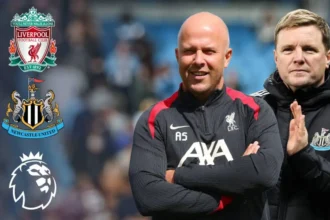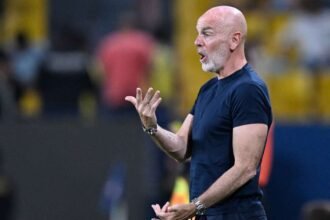Lionel Messi‘s absence from the 2024 MLS All-Star Game left many fans feeling let down. With questions swirling about how MLS handled the situation, it’s clear that the league must find a balance between star power and fan expectations to preserve its credibility.
When Lionel Messi made his much-anticipated move to Major League Soccer in 2023, the promise was clear: an instant uplift for a league in need of a global superstar. His debut in Inter Miami raised the profile of MLS like few before him. But after his absence from the 2024 MLS All-Star Game in Austin, the cracks in this narrative began to show. Messi’s no-show, compounded by how the situation was handled by both the league and the superstar himself, has left a lingering bitterness among fans and has raised questions about the real value of star power for MLS.
The Fallout from Austin
For Jesus Rodriguez, a 22-year-old with cerebral palsy, Messi represented more than just football greatness; he was an inspiration. His mother, Tanya Jasso, made extensive plans to bring her son to Austin for the MLS All-Star Game, securing VIP tickets and driving 10 hours from Alamo, New Mexico in the hope that Jesus could finally see his idol live. But just hours before the game, both Messi and teammate Jordi Alba were pulled from the lineup, with no prior warning until late in the morning on matchday.
For Jasso, the news was crushing:
“I made a lot of sacrifices… We drove 10 hours… and now we’re heartbroken. Messi should think about his fans, especially those like my son, who look up to him.”
Her frustrations were echoed across social media, where many felt misled by the league’s last-minute announcement of Messi’s absence. MLS‘s decision to wait until the morning of the game to disclose Messi’s status was widely criticized, with some suggesting that the league had purposefully withheld the information to build hype around the event.
Even The Austin Chronicle weighed in, with Eric Goodman calling Messi’s absence a “huge middle finger” to both MLS and its fans. It was clear that Messi’s failure to attend the event—something expected of any superstar—was more than just a missed opportunity. It was a significant breach of the implicit contract between fans and the league.
MLS’ Response and Missed Opportunities
MLS Commissioner Don Garber remained largely passive in his midseason address, praising Messi’s contributions to the league but avoiding any clear criticism of the situation. When pressed on whether Messi would face disciplinary action, Garber was non-committal, instead focusing on the positive impact Messi had brought to MLS.
Yet, Garber’s failure to hold Messi accountable for skipping such a marquee event has set a concerning precedent. The MLS All-Star Game, while not always competitive, serves as a crucial marketing tool for the league. It’s an opportunity to engage fans, boost attendance, and showcase the league’s talent. Messi’s absence undermined that purpose, and Garber’s soft stance left fans wondering where the league’s commitment to their experience really stands.
Messi vs. Beckham: A Tale of Two Stars
The situation stood in stark contrast to David Beckham’s tenure in MLS. When Beckham arrived in 2007, he made it clear that he was there for more than just playing soccer. He was an ambassador for the league, constantly engaging with the media and making appearances to promote MLS. Beckham understood that, beyond his on-field performance, his visibility was essential to the league’s growth.
Messi, by comparison, has been far less visible in his role as a global ambassador for MLS. While his on-field impact has been undeniable—his arrival has boosted attendance, global media coverage, and even franchise valuations—his media presence has been minimal. Fans have seen little of his personality or thoughts on MLS, leaving them disconnected from the man who has become the face of the league.
This lack of engagement has hurt MLS’ ability to capitalize on Messi’s global appeal. Unlike other superstars, Messi has not made himself available for the same level of exposure. Instead, he appears to be playing by a different set of rules—something that has only become more apparent after his absence from the All-Star Game.
The Messi Rules: How Much Flexibility Is Too Much?
Messi’s absence was the latest example of his “special treatment” in MLS. While Zlatan Ibrahimović also skipped an All-Star Game, the fact that Messi is the face of MLS meant the stakes were higher. The flexibility that MLS has afforded Messi—whether in terms of media duties, scheduling, or event appearances—may be at odds with the expectations that fans have for the league.
MLS has given Messi significant leeway, but at what cost? Inter Miami’s ownership, led by Beckham, is under intense pressure to extend Messi’s contract, which expires in 2025. But with Messi’s relationship with the league still somewhat detached, MLS must confront the question of whether its star power alone can carry the league forward. The game’s marquee players may help boost revenue and visibility, but can they build sustained trust and engagement with fans?
Where MLS Goes From Here
The real question now is how MLS can avoid similar situations in the future. Should the league reassess how it handles high-profile players and their participation in key events? One solution could be adjusting the timing of the All-Star Game, especially when other significant international commitments, such as the Club World Cup or the World Cup, are in play.
Additionally, the league must find a way to hold its stars accountable, regardless of their stature. If MLS continues to give Messi—and others—a pass, it risks alienating fans who feel their loyalty and support for the league should be reciprocated with transparency and accountability.
The league needs to ensure that, while star power can drive revenue, it cannot be at the expense of fan trust or the core values of the competition. Trust is earned, not bought. And if MLS cannot deliver on its promises to its fans, those same fans will look elsewhere.











